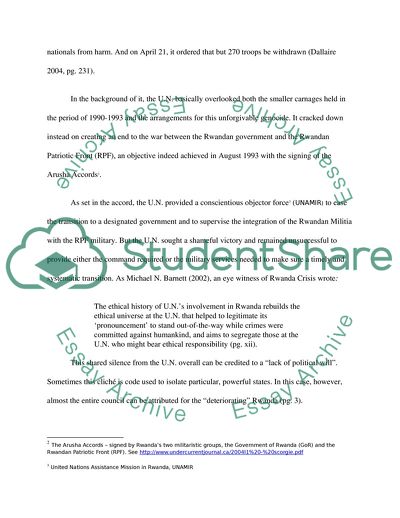Cite this document
(Eyewitness to a Genocide: The United Nations and Rwanda Report Example | Topics and Well Written Essays - 1250 words, n.d.)
Eyewitness to a Genocide: The United Nations and Rwanda Report Example | Topics and Well Written Essays - 1250 words. https://studentshare.org/politics/1713274-politics
Eyewitness to a Genocide: The United Nations and Rwanda Report Example | Topics and Well Written Essays - 1250 words. https://studentshare.org/politics/1713274-politics
(Eyewitness to a Genocide: The United Nations and Rwanda Report Example | Topics and Well Written Essays - 1250 Words)
Eyewitness to a Genocide: The United Nations and Rwanda Report Example | Topics and Well Written Essays - 1250 Words. https://studentshare.org/politics/1713274-politics.
Eyewitness to a Genocide: The United Nations and Rwanda Report Example | Topics and Well Written Essays - 1250 Words. https://studentshare.org/politics/1713274-politics.
“Eyewitness to a Genocide: The United Nations and Rwanda Report Example | Topics and Well Written Essays - 1250 Words”. https://studentshare.org/politics/1713274-politics.


